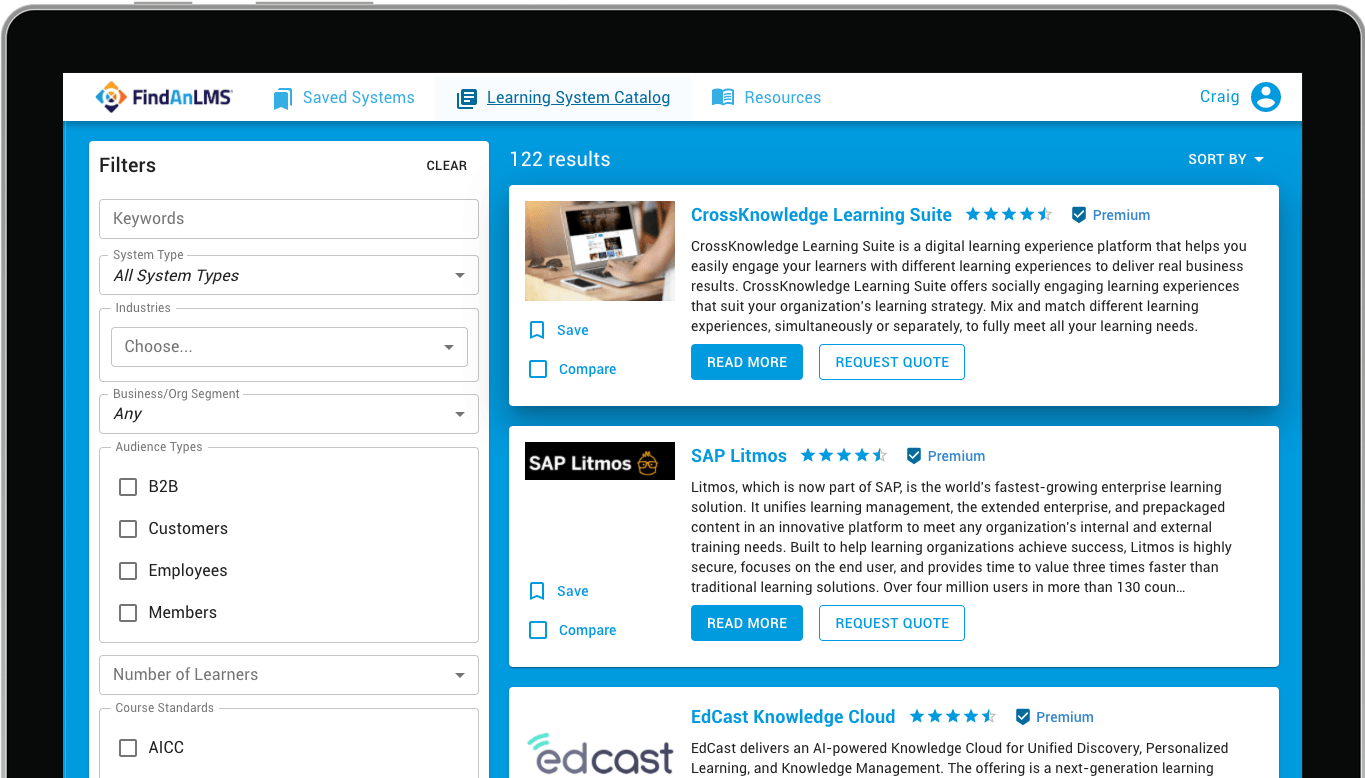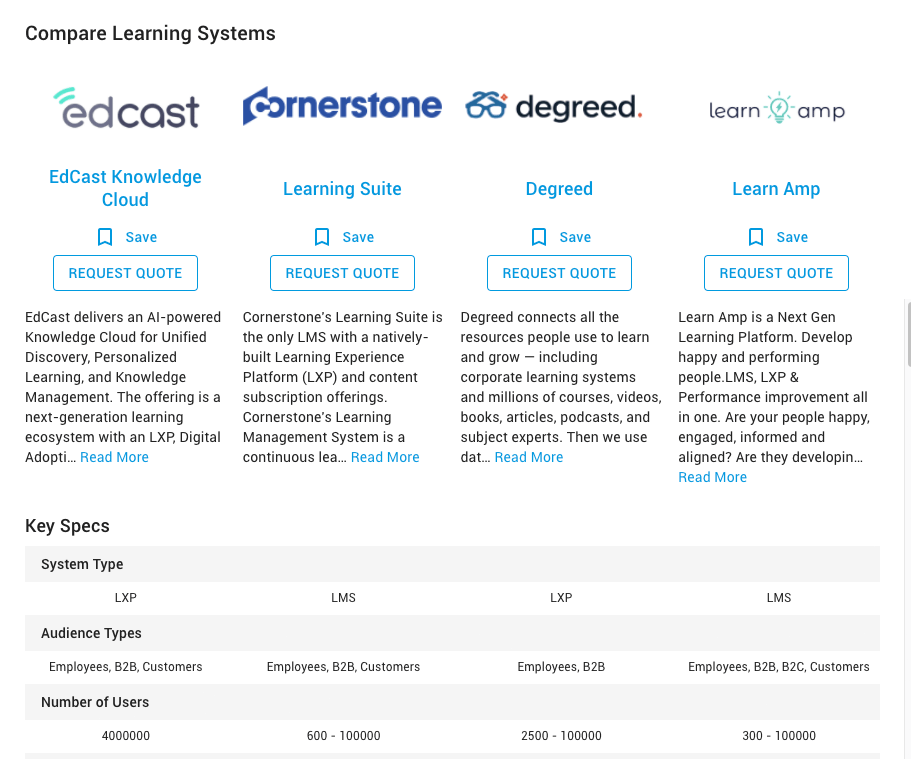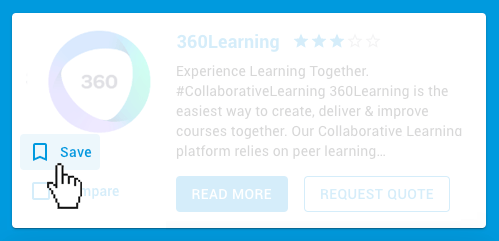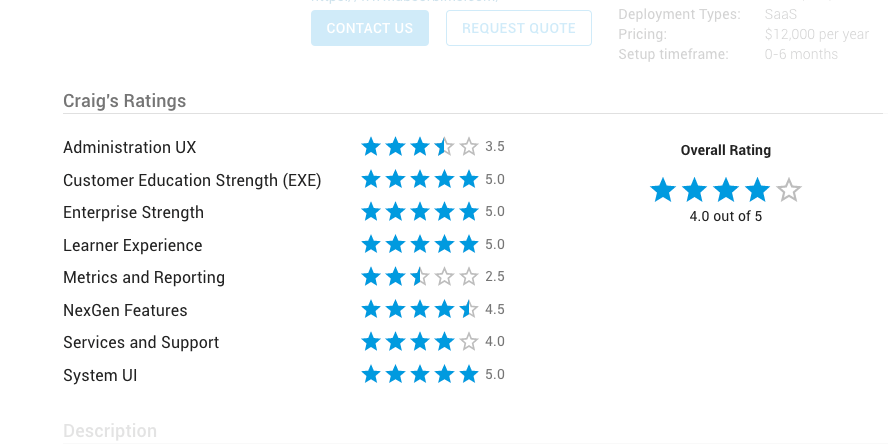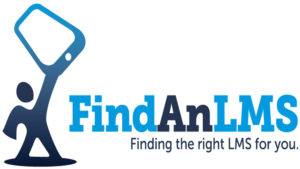Selecting a learning management system, or LMS, sounds easy. However, there are so many options on the market that many buyers feel overwhelmed, especially since LMS vendors often assume (incorrectly) that every potential customer is an industry expert. It can be tempting to pick one just to get it over with, but that approach to choosing a corporate LMS will leave your company’s learners and stakeholders wanting more.
Instead, consider soliciting an expert opinion to help you find a corporate LMS. Craig Weiss has been working in the e-learning space almost since its inception, giving him more than two decades of experience with the capabilities of corporate LMS vendors. Below, he provides four generic tips that anybody can use to help them select the right corporate LMS. If you’re interested in more of Weiss’s insights, he has created FindAnLMS.com to help average people compare the top names in the industry head-to-head. You can create a free account on FindAnLMS.com to get started.
Why Do You Want a Corporate LMS?
Your business’s corporate LMS should align with your broader organizational goals, meaning that you have to define what your goals are before you pick one. For example, a public enterprise-level organization training remote workers around the globe will need multi-language support and robust reporting and data visualization tools to prove ROI to investors. In contrast, a growing business might emphasize scalability to keep up with growth and customization features like white-labeling to get their brand out there. Weiss recommends writing down your goals and then approaching feature lists through that lens when researching corporate LMS solutions.
It Doesn’t Matter What Corporate LMS Vendors Call Themselves
Some in the online learning space see “corporate LMS” as a dated term, preferring to sound modern through terminology like “learning experience platform (LXP)” or “talent development platform (TDP).” Those terms aren’t perfectly synonymous with an LMS, but they mean different things to different people and therefore cannot help you choose the right system. Instead, ask whether each vendor’s customer base is primarily employee-focused, customer-focused, or a combo of the two. Weiss argues that this distinction is far more important than a vendor’s preferred nomenclature because it dictates which features they have and are focused on improving.
Integrations Bridge the Gap Between Learning and Performance
Your company probably uses dozens of programs every day, and making sure that your corporate LMS integrates with your preferred products will help your whole company operate more efficiently. The number of integrations a given platform offers is a common piece of marketing that’s never useful in the real world. If your organization uses Salesforce to track sales productivity, Google’s G-Suite to foster collaboration, and a specific CRM, you want integrations with those three programs. A list of “100+ integrations” with products you don’t use doesn’t help you.
Know Your Learner
A corporate LMS has to meet your organization’s needs, but that won’t happen unless it meets the needs of individual learners. If your team is younger and more tech-savvy, you might look for advanced features like social learning and gamification to make learning more fun for them. If some team members aren’t as comfortable with technology, you might instead focus on an intuitive UI with no unnecessary features to minimize confusion. Single-Sign-On (SSO) ensures that learners only need to remember one set of login credentials while outstanding customer support provides recourse should something go awry.
Choose A Corporate LMS with FindAnLMS.com
It takes time, patience, and commitment to choose a great corporate LMS for your company’s needs. If you want expert help comparing top options head to head, create a free account on FindAnLMS.com and take full advantage of Craig Weiss’s expertise.

